The TESDA Online Program (TOP) offers a wide range of online courses designed to provide accessible and practical education for individuals looking to enhance their skills in human health and health care. From community health services to specialized training in caregiving, massage therapy, and infectious disease management, these courses empower learners to make a positive impact in their communities. Whether you’re passionate about promoting well-being, supporting the elderly, or helping manage public health challenges, there’s a program tailored to meet your needs.
Also read: TESDA Emergency Medical Services Courses
These online courses are ideal for those seeking flexible learning opportunities to build expertise in health-related fields. With comprehensive training provided through modern, convenient platforms, learners can acquire essential skills such as health promotion, disease prevention, contact tracing, and COVID-19 workplace safety. TESDA’s health care courses are perfect for individuals aspiring to professional roles or simply looking to improve their knowledge and serve their communities better.
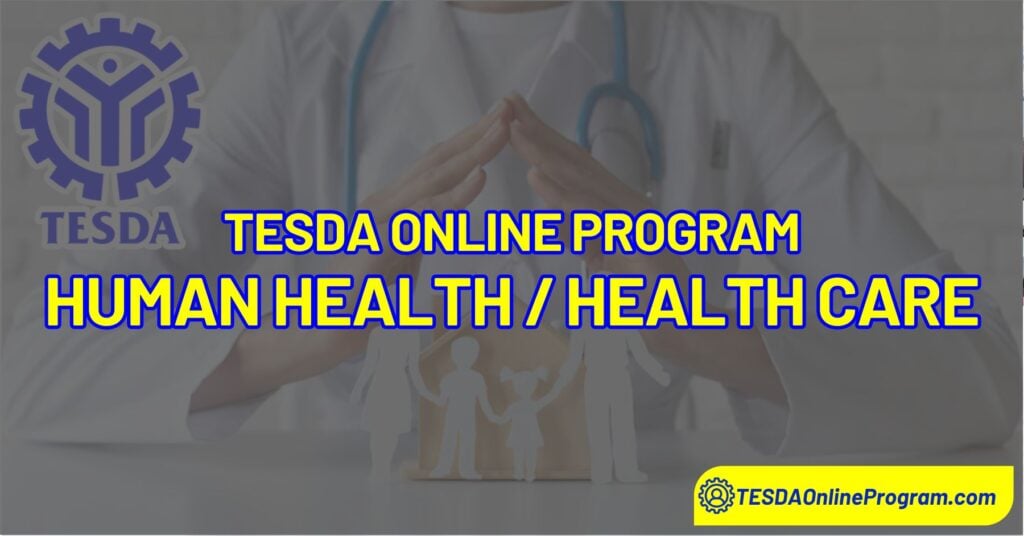
Benefits
Here are some benefits of taking these Human Health/ Health Care Online Courses
- Accessible Learning: TESDA online courses are available anytime, anywhere, making it easy to learn at your own pace without leaving home.
- Specialized Training: Each course focuses on specific, in-demand skills, such as caregiving, massage therapy, or contact tracing, tailored to meet industry needs.
- Career Opportunities: Completing these courses can open up job prospects in healthcare, wellness, and community services, boosting employability.
- Community Impact: Participants can make a meaningful difference by promoting health, preventing disease, and supporting their communities.
- Holistic Development: Courses like massage therapy not only teach technical skills but also promote personal well-being and holistic health practices.
- Flexible Certification: These programs provide recognized certifications that enhance resumes and demonstrate proficiency in various fields.
Barangay Health Services NC II Online Course
The Barangay Health Services NC II Online Course. This course trains individuals to assist households in identifying health issues, promoting well-being, and educating family members. Participants also learn to maintain health equipment and records while monitoring household health. It’s an ideal program for those passionate about health promotion and disease prevention.

Modules
There are 6 modules covered in the Barangay Health Services NC II training program. These modules are designed to equip learners with the necessary knowledge, skills and attitude required to become competent community health workers.
Module 1: Introduction to Barangay Health Services
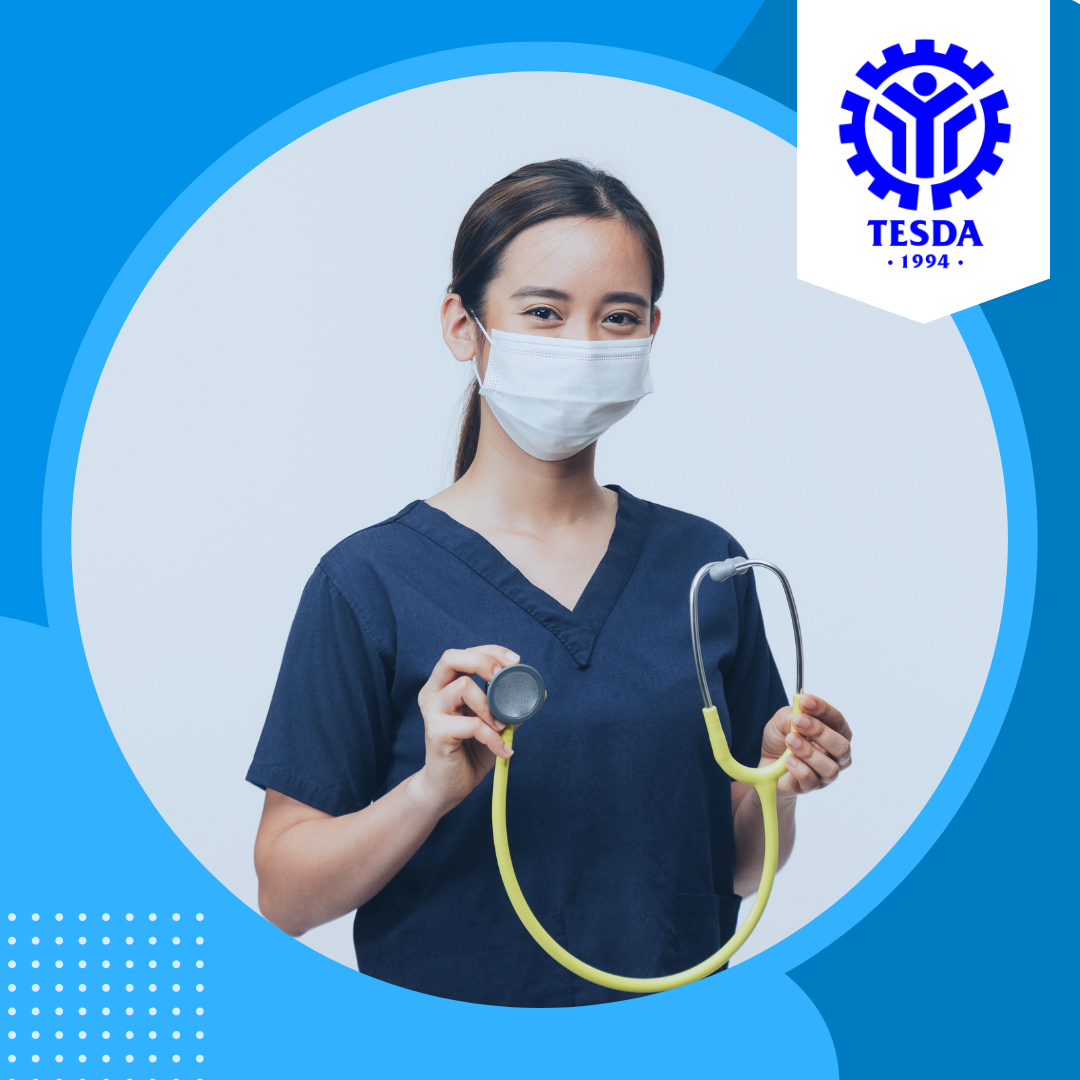
UNIT 1: Barangay Health Services in the Philippines
Lesson 1: Public Health System in the Philippines
Lesson 2: Barangay Health Unit Personnel
Lesson 3: Barangay Health Programs and Services
Upon completion of this unit, the learner will possess the ability to:
- Articulate the structure of the Philippine public health system
- Determine the functions of the different personnel in the Barangay Health Unit
- Explain the different health programs and services offered by the BHU.
UNIT 2: Practicing Career Professionalism
Lesson 1: Roles of Barangay Health Workers
Lesson 2: Professional Work Habits of a Barangay Health Worker
Upon completion of this unit, the learner will possess the ability to:
- Explain the different roles of a barangay health worker
- Perform the professional work habits of a barangay health worker.
UNIT 3: Fundamental Knowledge and Skills for Barangay Health Workers
Lesson 1: Human Anatomy and Physiology
Lesson 2: Basic First Aid
Lesson 3: Implementing and Monitoring Infection Control Policies and Procedures
Lesson 4: Practicing Standard Precautionary Measures
Upon completion of this unit, the learner will possess the ability to:
- Differentiate the different organ systems in the human body
- Provide basic first-aid
- Implement infection control procedures
- Practice standard precautionary measures in the workplace
Module 2: Assisting Household to Identify Health Problems and Promote Health and Well-being
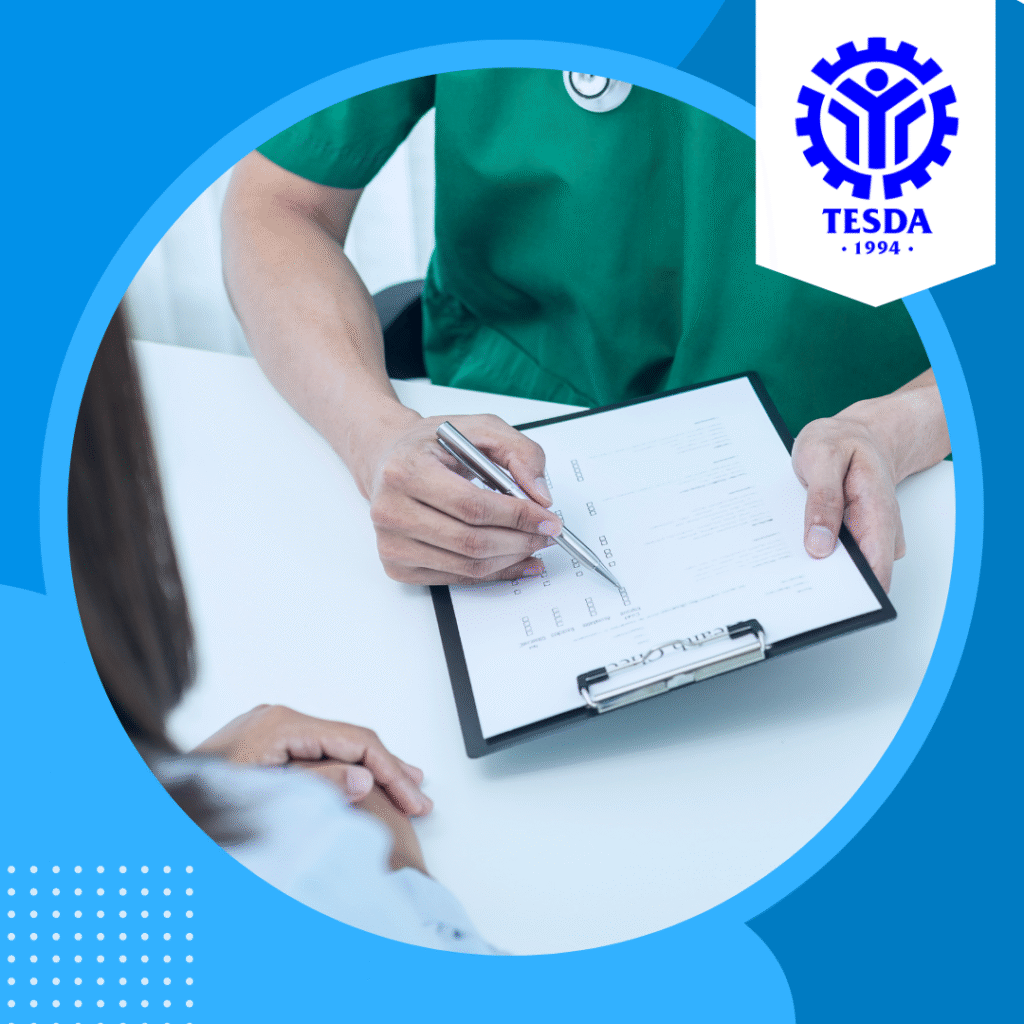
UNIT 1: Assisting Client to Communicate with Service Providers
Lesson 1: Clients and Health Service Providers
Lesson 2: Assisting Clients to Communicate with Health Service Providers
Upon completion of this unit, the learner will possess the ability to:
- Connect clients with health service providers according to their profile, needs, and concerns
- Use appropriate language, visuals, and materials in communicating with clients
- Practice appropriate attitude and behavior when dealing with clients
UNIT 2: Explaining Health Concerns to Service Providers for Better Understanding of Client and Community Needs
Lesson 1: Communicate Client’s Needs and Concerns to Health Service Providers
Lesson 2: Communicate Existing Community Values and Beliefs, Gender Roles, and Presence of Traditional Healers to Health Service Providers
Upon completion of this unit, the learner will possess the ability to:
- Inform appropriate health service providers about the client’s needs and concerns
- Explain community values, beliefs, and gender roles to health service providers
- Orient health service providers regarding the presence and role of traditional healers in the service area coverage
UNIT 3: Providing Support to Clients in Accessing Health Services
Lesson 1: Providing Logistical Support
Lesson 2: Informing Client of the Schedule of Available Health Services
Upon completion of this unit, the learner will possess the ability to:
- Support clients with their logistical needs
- Update clients with their respective health schedules
UNIT 4: Assisting Individuals in Health Planning to Address Identified Needs
Lesson 1: Types and Components of a Community Health Plan
Lesson 2: Assisting in Community Health Planning
Upon completion of this unit, the learner will possess the ability to:
- Identify the basic components of a health plan
- Relay important information to clients for health planning
- Suggest relevant interventions to clients for health planning
- Monitor the process of implementing the health plan
Module 3: Sharing Knowledge and Skills Among Members to Provide Information, Education and Communication and Household Teaching in Disease Prevention and Control
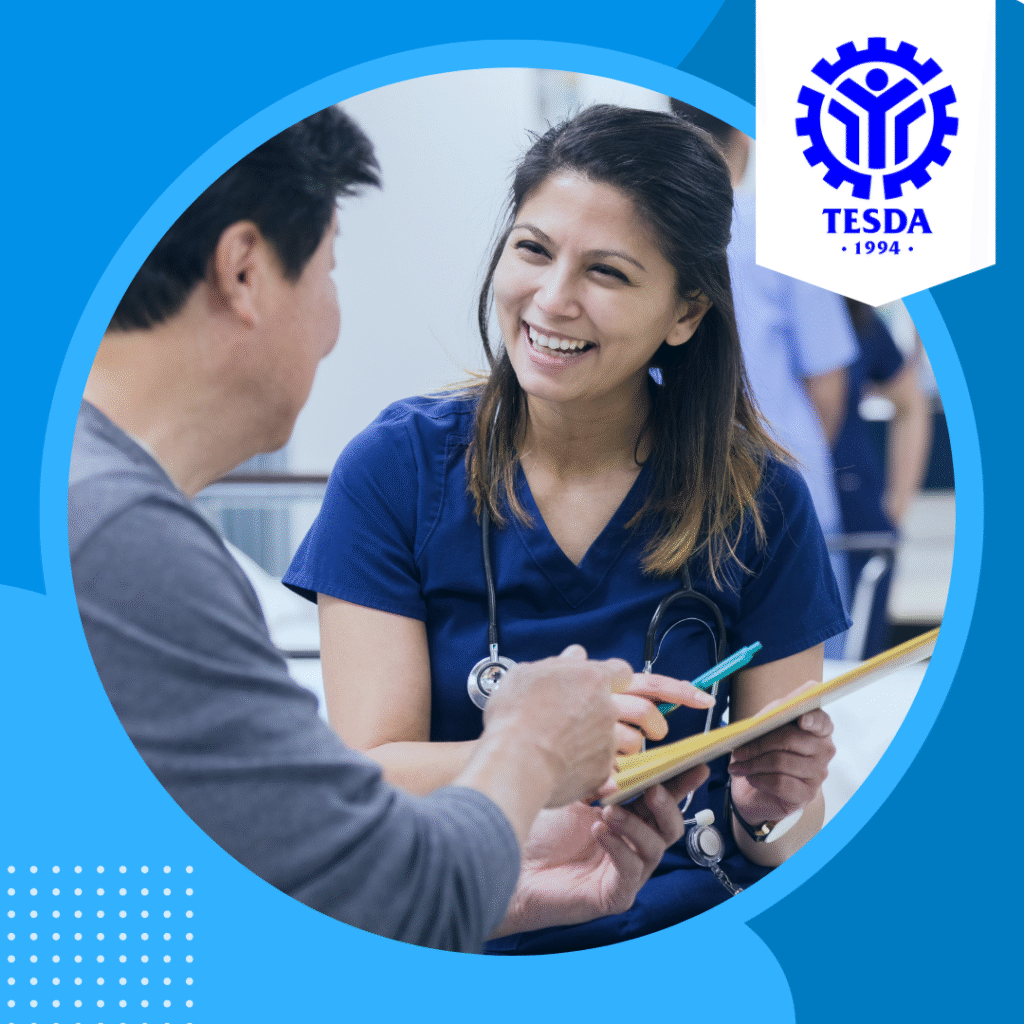
UNIT 1: Promoting Basic Primary Health Care Services to the Community
Lesson 1: Community Networks for Health Programs
Lesson 2: Basic Primary Health Care Services Promotion
Lesson 3: Ensuring Effective Promotion of Basic Primary Health Care Services
Upon completion of this unit, the learner will possess the ability to:
- Establish and maintain community networks
- Apply appropriate modes in promoting health-related issuances, policies, practices, and strategies in your service area coverage
- Observe appropriate measures to ensure the effective promotion of basic primary healthcare services.
UNIT 2: Providing Regular and Updated Basic Health Education and/or Household Teaching to the Community
Lesson 1: Providing Basic Health Education
Lesson 2: Strategies for Providing Basic Health Education to Community
Upon completion of this unit, the learner will possess the ability to:
- Explain the importance of providing health education
- Implement effective health education programs
Module 4: Monitoring Health Status of Household Members Under Your Area of Service Coverage
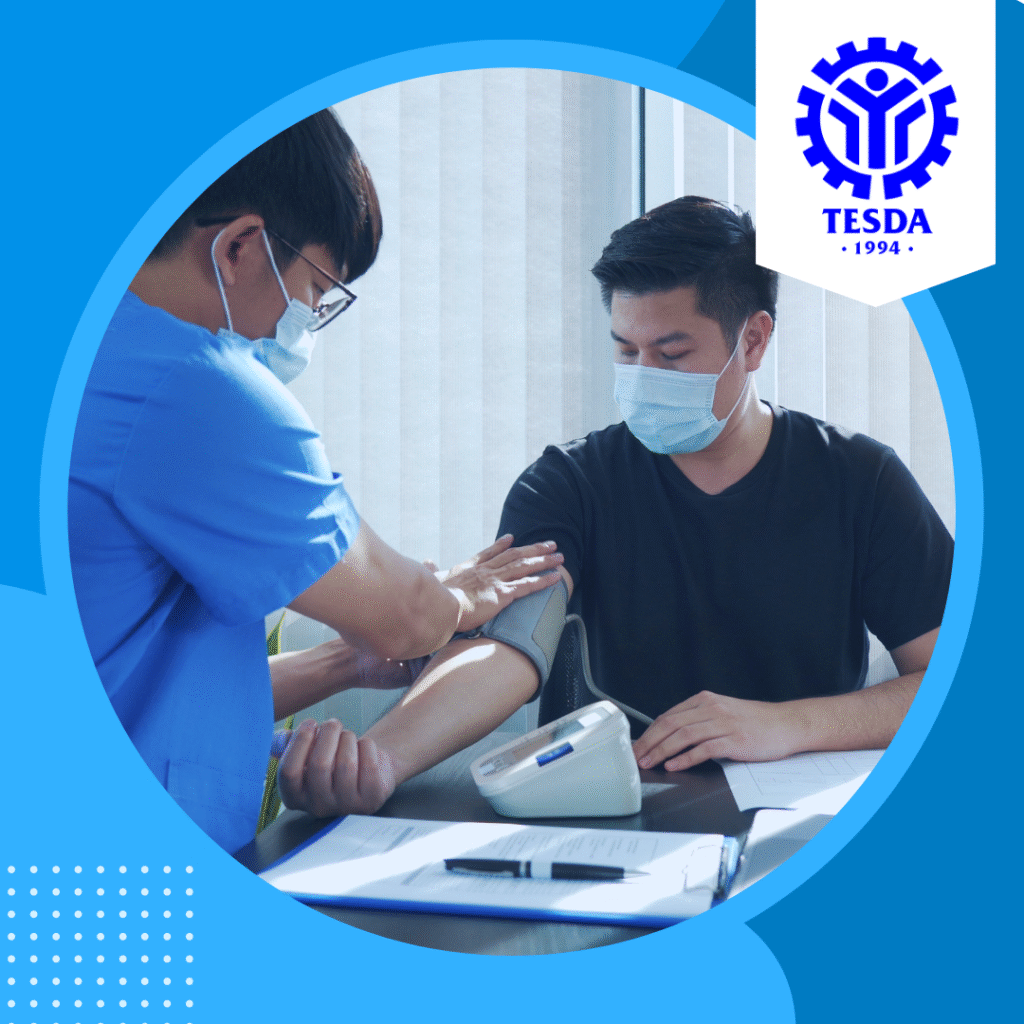
UNIT 1: Assisting Clients in a Consultation
Lesson 1: Providing Assistance to Clients
Lesson 2: Taking Vital Signs of Clients
Lesson 3: Taking Anthropometric Measurements of Clients
Lesson 4: Monitoring the Health of Community Clients
Upon completion of this unit, the learner will possess the ability to:
- Assist clients during the consultation
- Obtain and verify clients’ vital signs
- Measure and confirm the anthropometric measurement of clients/ patients.
UNIT 2: Refer Symptomatic Clients to Appropriate Health Facilities
Lesson 1: Health Referral System
Lesson 2: Health Referral Activities
Upon completion of this unit, the learner will possess the ability to:
- Explain how referral systems in health care units operate
- Conduct health referral activities
- Assist the client and the attending physicians during health referrals
Module 5: Safekeeping of Equipment, Medical Supplies and Materials in Health Station
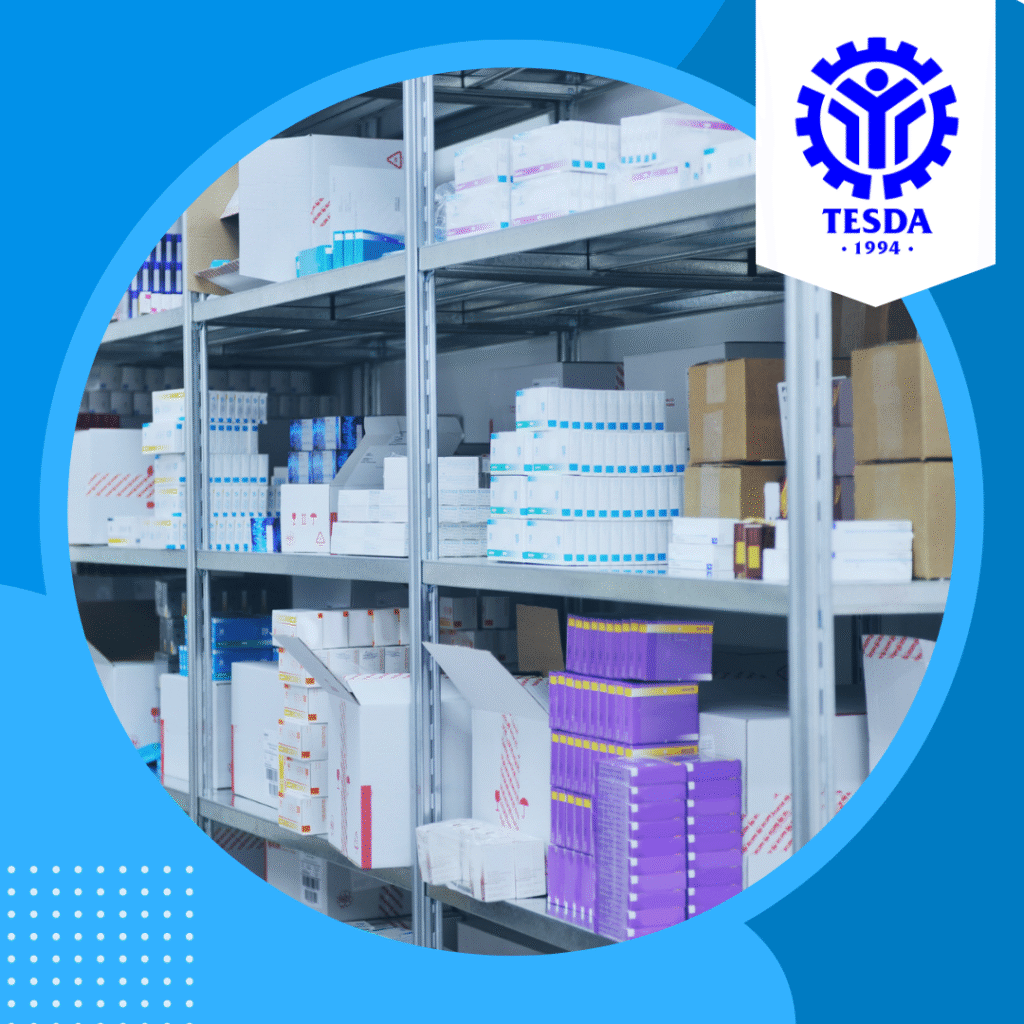
UNIT 1: Conducting Physical Inventory of Equipment and Medical Supplies
Lesson 1: Types and Benefits of Conducting Inventory
Lesson 2: Conducting Physical Inventory
Upon completion of this unit, the learner will possess the ability to:
- Determine the different types of physical inventory and
- Explain the benefits of conducting physical inventory
UNIT 2: Maintaining Community Health Facilities and Equipment
Lesson 1: Maintaining Community Health Facilities and Equipment
Lesson 2: Ensuring Adequate Equipment, Materials, Supplies and Medicines
Upon completion of this unit, the learner will possess the ability to:
- Conduct common maintenance activities for barangay health station tools, equipment, facilities, supplies and materials and
- Perform proper safekeeping of barangay health station tools, equipment, facilities, supplies and materials
Module 6: Maintaining Updated List/Record of Health Activities
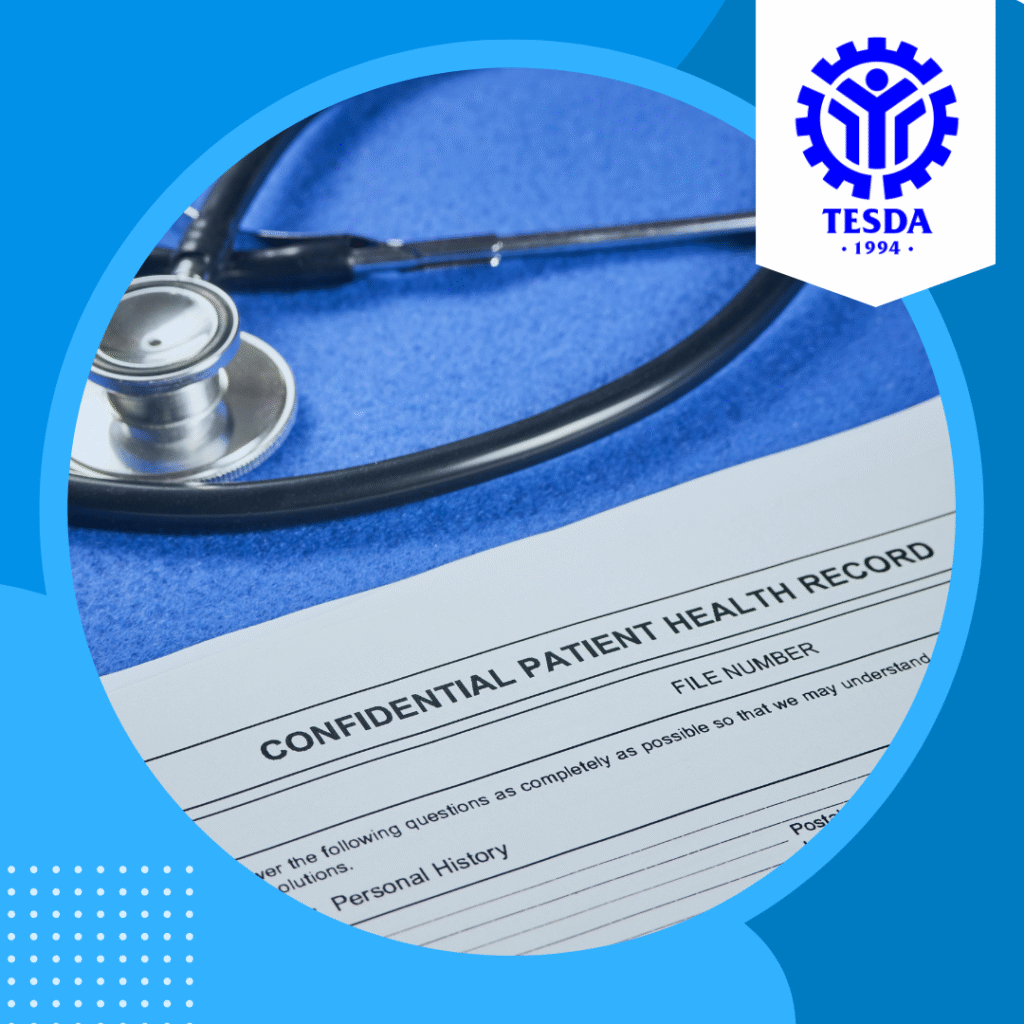
UNIT 1: Introduction to Health Records Management
Lesson 1: Characteristics of a Health Record
Lesson 2: Health Records Management
Upon completion of this unit, the learner will possess the ability to:
- Define what is a health record and how health record systems work
- Explain the importance of record-keeping
- Articulate the life cycle of a health record
UNIT 2: Gathering and Reporting Health Information
Lesson 1: Gathering Health Information
Lesson 2: Preparing Reports
Upon completion of this unit, the learner will possess the ability to:
- Identify sources of valid and reliable health information
- Determine common methods of gathering information
- Prepare proper reports using the prescribed template
Note: After completing each module, you will receive an official certificate to acknowledge your achievements and showcase your expertise. These certificates validate your commitment to continuous learning. Get ready to celebrate your dedication!
Massage Therapy NC II Online Course
Massage therapy uses touch and knowledge of the body to support overall health. The Massage Therapy NC II Online Course offered by the TESDA Online Program is a great starting point. It teaches essential techniques from Swedish, Shiatsu, and Thai massage, as well as the main steps of a session: before, during, and after the massage.
Modules
There are 4 modules in this course:
Module 1: Foundations of Massage Practice
This introductory course covers Swedish, Shiatsu, and Thai massage, providing a foundation for studying all three modalities or focusing on one.
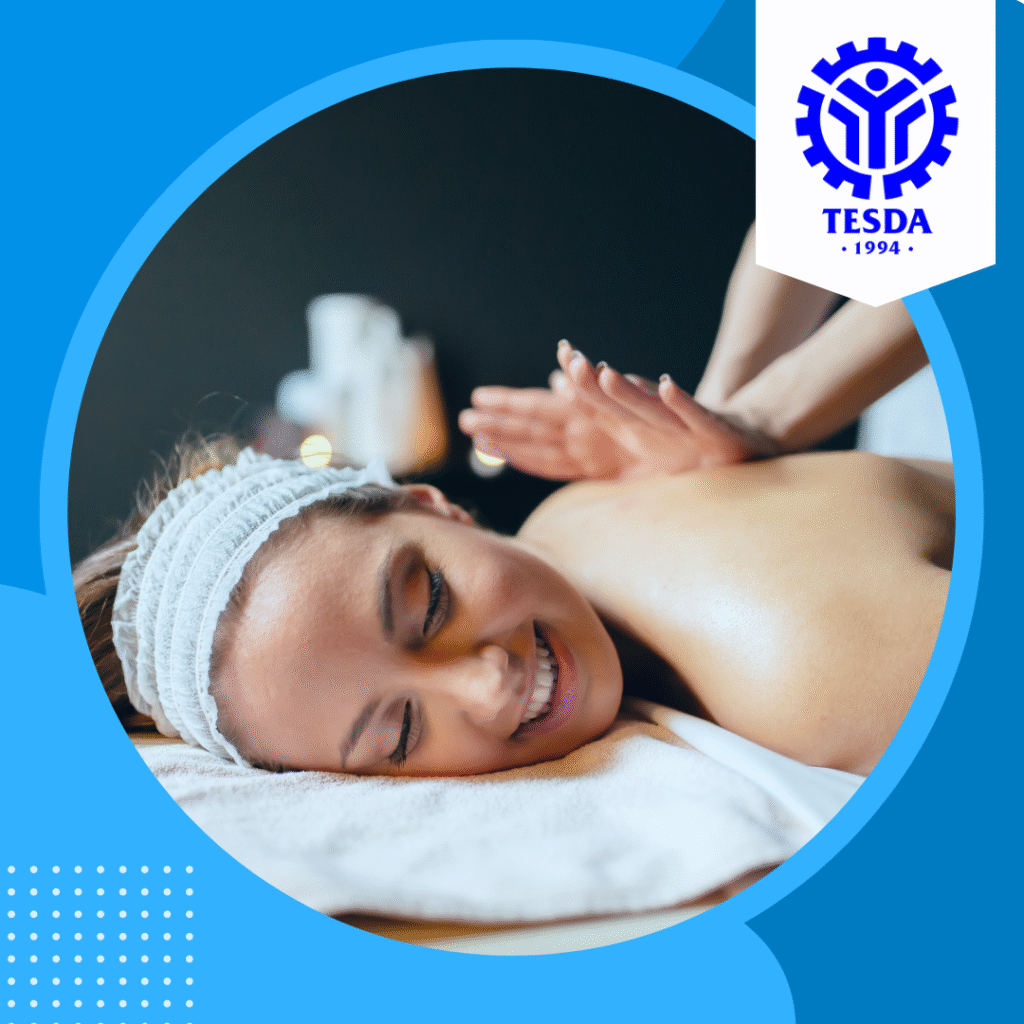
Unit 1: The Massage Therapist
Lesson 1: Massage Therapy as a Profession
Lesson 2: Qualities of a Massage Therapist
Lesson 3: Occupational Safety and Health (OSH) for Massage Therapists
After completing this unit, the learner will be able to:
- Describe massage therapy as a profession;
- Enumerate the roles and responsibilities of a massage therapist; and
- Familiarize yourself with the different Occupational Safety and Health guidelines.
Unit 2: The Workplace
Lesson 1: The Massage Spa/Clinic
Lesson 2: Standard Operating Procedures (SOPs) in a Massage Spa/Clinic
- Spend at least 2 minutes on this activity
- Go through the activity to the end
After completing this unit, the learner will be able to:
- Describe the ideal characteristics of a massage clinic/spa and
- Identify the different Standard Operating Procedures (SOPs) in a massage clinic.
Unit 3: Anatomy and Physiology for Massage Therapy
Lesson 1: Organ Systems of the Human Body
After completing this unit, the learner will be able to:
- Familiarize yourself with the anatomy of the human body
- Familiarize yourself with the important microbiology and pathology concepts relevant to the practice of massage therapy
- Identify the different indications and contraindications
- Identify the endangerment sites of the body.
Module 2: Fundamentals of Massage Therapy
This introductory course provides a comprehensive overview of Massage Therapy, covering the essential knowledge in three stages: pre-massage, massage proper, and post-massage.
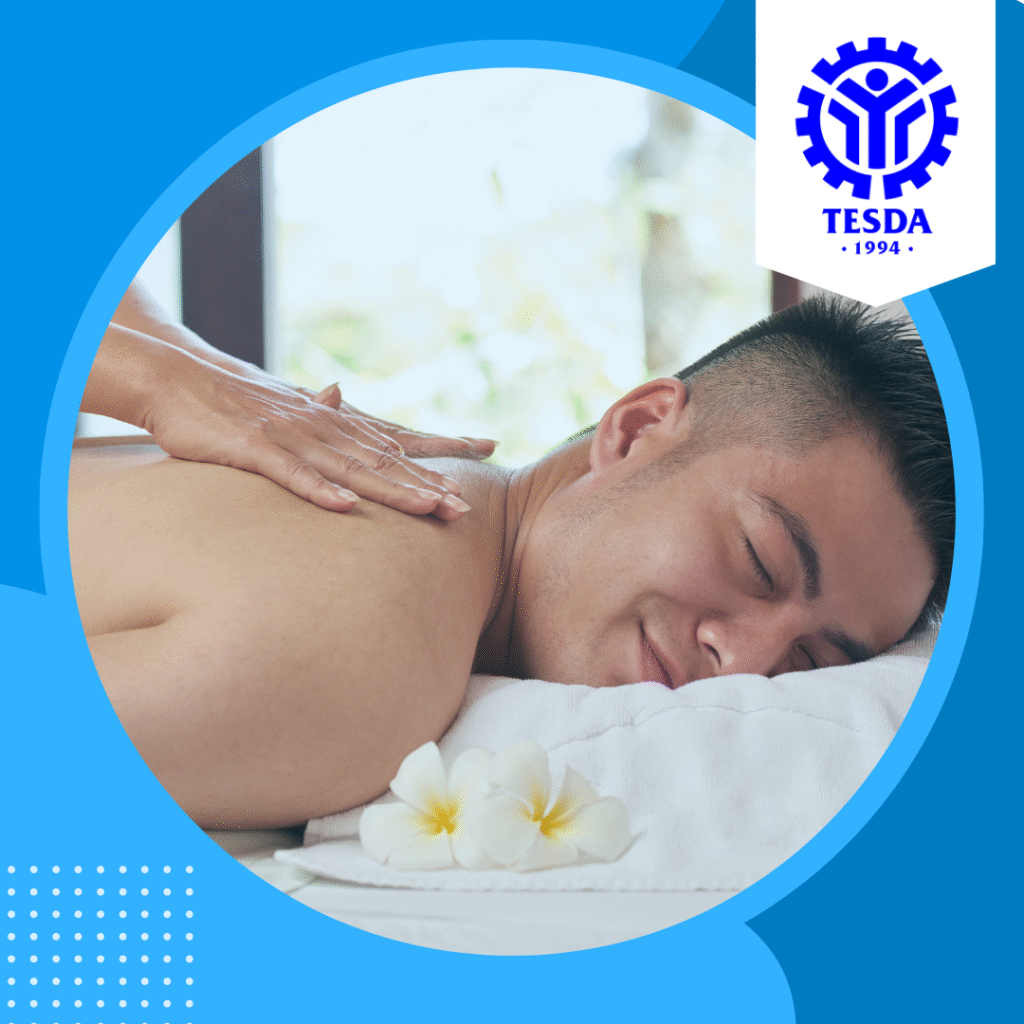
Unit 1: Preparing for the Massage Session
Lesson 1: Preparing Yourself
After completing this unit, the learner will be able to:
- Determine the preparations required before performing a massage.
- Discuss the preparation of the workplace/massage area.
- Identify procedures to correctly assess the client.
Lesson 2: Preparing the Workplace
Unit 2: Massage Proper
Lesson 1: Preparing the Client
Lesson 2: Basic Manipulations, Bodywork Techniques, and Strokes
Lesson 3: Post Massage
After completing this unit, the learner will be able to:
- Demonstrate the different steps in preparing a client/customer before a massage.
- Demonstrate the basic manipulations, bodywork techniques, and strokes.
- Discuss how aftercare and documentation are properly done after a massage.
Module 3: Performing Shiatsu
This course provides essential knowledge for performing Shiatsu Massage.
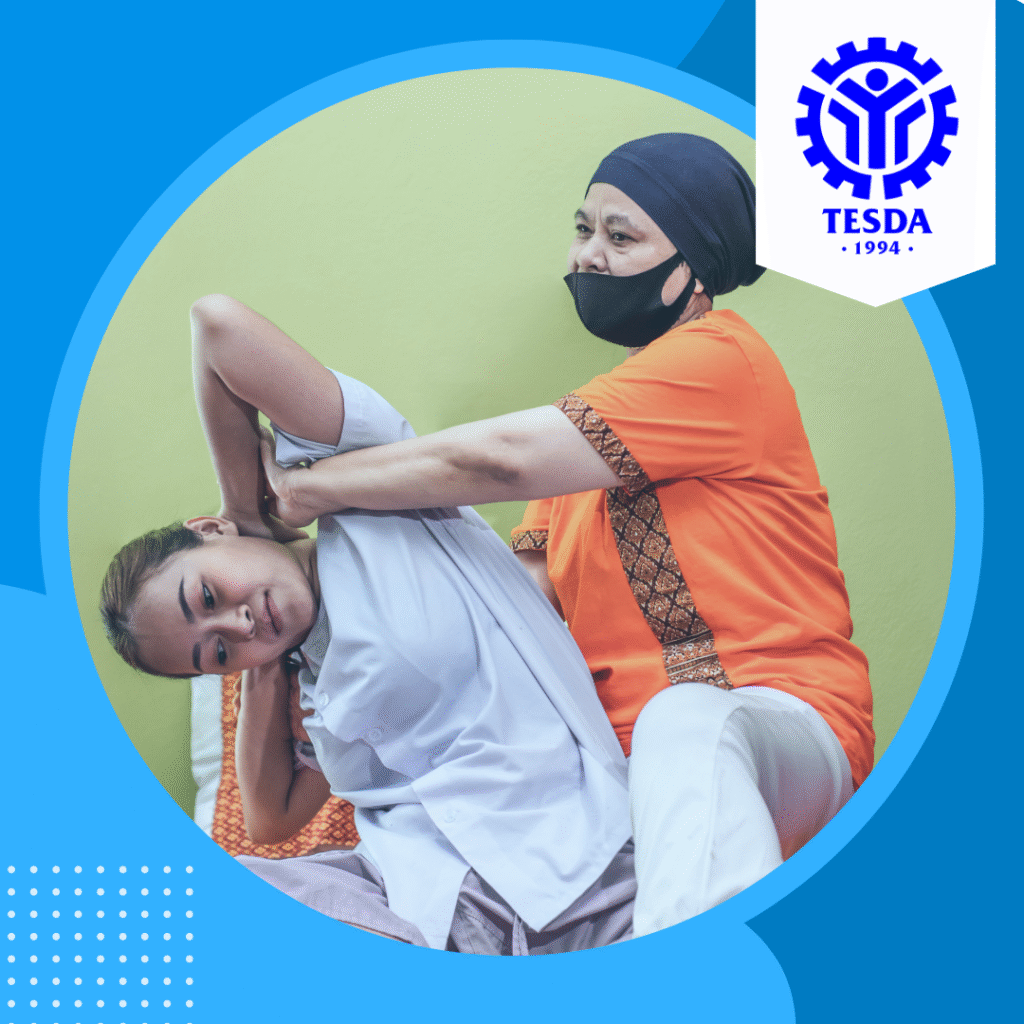
Unit 1: Introduction to Shiatsu
Lesson 1: Definition, History, and Principles of Shiatsu Massage
Lesson 2: Benefits of Shiatsu Massage
Lesson 3: Setting Up the Massage Area
Lesson 4: Observing Proper Body Mechanics
Lesson 5: Basic Shiatsu Techniques
After completing this unit, the learner will be able to:
- Define Shiatsu Massage
- Discuss the origins of Shiatsu Massage
- Enumerate the benefits of Shiatsu Massage
- Describe the common set-up of a Shiatsu Massage area
- Describe the body mechanics of a massage therapist in Shiatsu Massage
- Familiarize yourself with the different techniques used in Shiatsu Massage
Unit 2: Performing Full-body Shiatsu
Lesson 1: Client/Customer’s Clothing
Lesson 2: Shiatsu Massage – Client/Customer Positions
Lesson 3: Shiatsu Massage – Contraindications
Lesson 4: Shiatsu Massage Proper
After completing this unit, the learner will be able to:
- Describe the proper attire of a client/customer during a massage
- Demonstrate proper positioning of the client/customer
- Identify the different contraindications of Shiatsu Massage
- Perform a full-body Shiatsu Massage
Module 4: Performing Swedish Massage
This course covers the essential knowledge needed to perform a Swedish Massage.
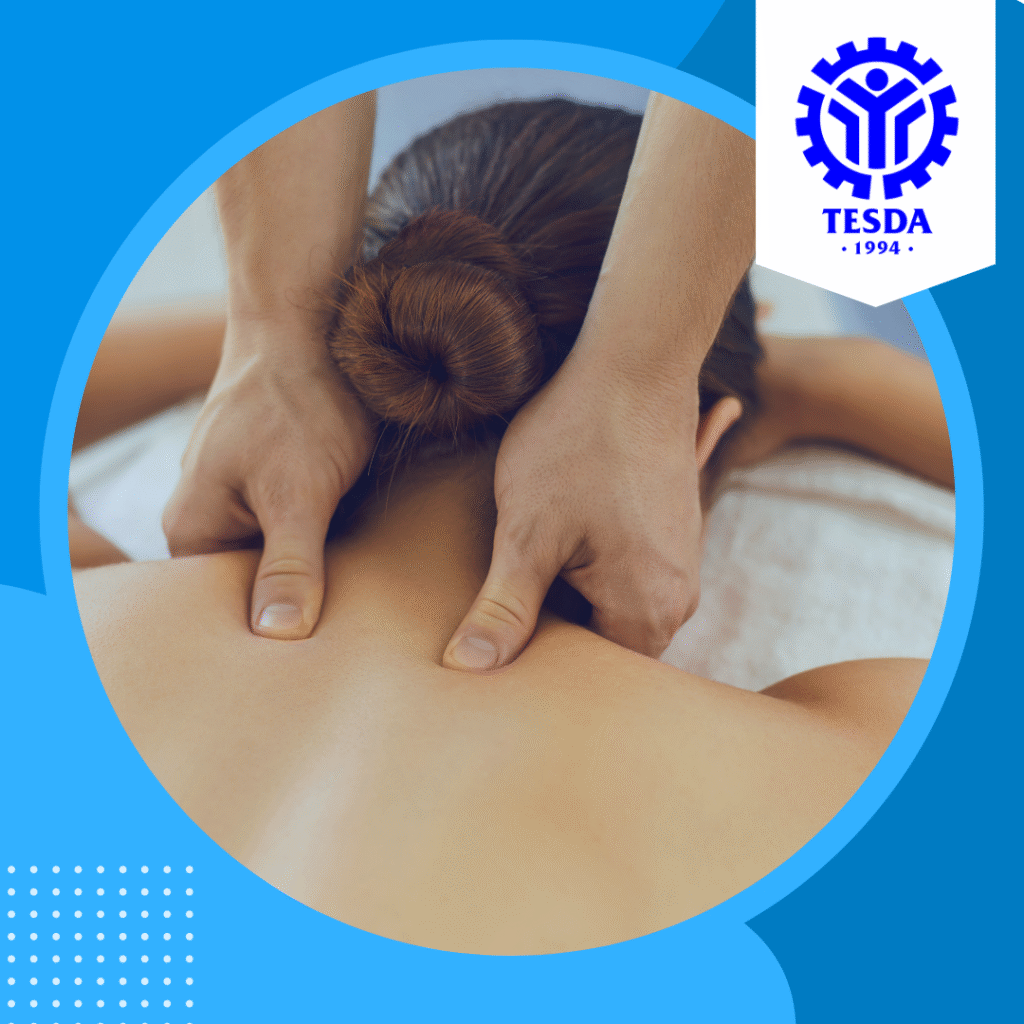
Unit 1: Introduction to Swedish Massage
Lesson 1: Definition and History of Swedish Massage
Lesson 2: Benefits of Swedish Massage
Lesson 3: Proper Setup of the Massage Area
After completing this unit, the learner will be able to:
- Define Swedish Massage
- Discuss the origins of Swedish Massage
- Enumerate the benefits of Swedish Massage
- Describe the proper set-up of a Swedish massage area
- Describe the body mechanics of a massage therapist while performing Swedish Massage
- Identify the different manipulations and strokes used in a Swedish Massage.
Unit 2: Performing Full-body Swedish Massage
Lesson 1: Preparing the Client/Customer
Lesson 2: Swedish Massage – Client/Customer Positions
Lesson 3: Swedish Massage – Contraindications
Lesson 4: Swedish Massage Proper
After completing this unit, the learner will be able to:
- Demonstrate proper draping techniques during a massage session
- Demonstrate proper positioning of the client
- Identify the different contraindications of Swedish Massage
- Perform a full-body Swedish Massage.
Note: Upon completion of each module, or specific modules, you will be awarded a certificate to recognize your achievements and demonstrate your expertise in the respective subject matter. These certificates serve as a testament to your dedication and commitment to continuous learning.
Qualifications
To enroll in this course and apply for national assessment, trainees or students must meet the following requirements:
- Completed 10 years of basic education
- Good communication skills, both verbal and written
- Proficient in basic mathematical computations
Caregiving (Elderly) NC II Online Course
As people grow older, they often need extra help, and caregiving can be challenging. The TESDA Online Programs’ Caregiving (Elderly) NC II online course provides thorough training in elderly care and essential skills. Available online, it’s ideal for anyone wanting to become a professional caregiver or to improve care for a loved one.
Modules
There are 6 modules in the Caregiving (Elderly) NC II course. Each module is designed to equip learners with the necessary knowledge, skills and attitude to become competent caregivers for elderly individuals.
Module 1: Introduction to Caregiving
This module covers the key competencies needed for working as a caregiver in health, wellness, and social services. Gain the knowledge, skills, and attitudes for a successful caregiving career.
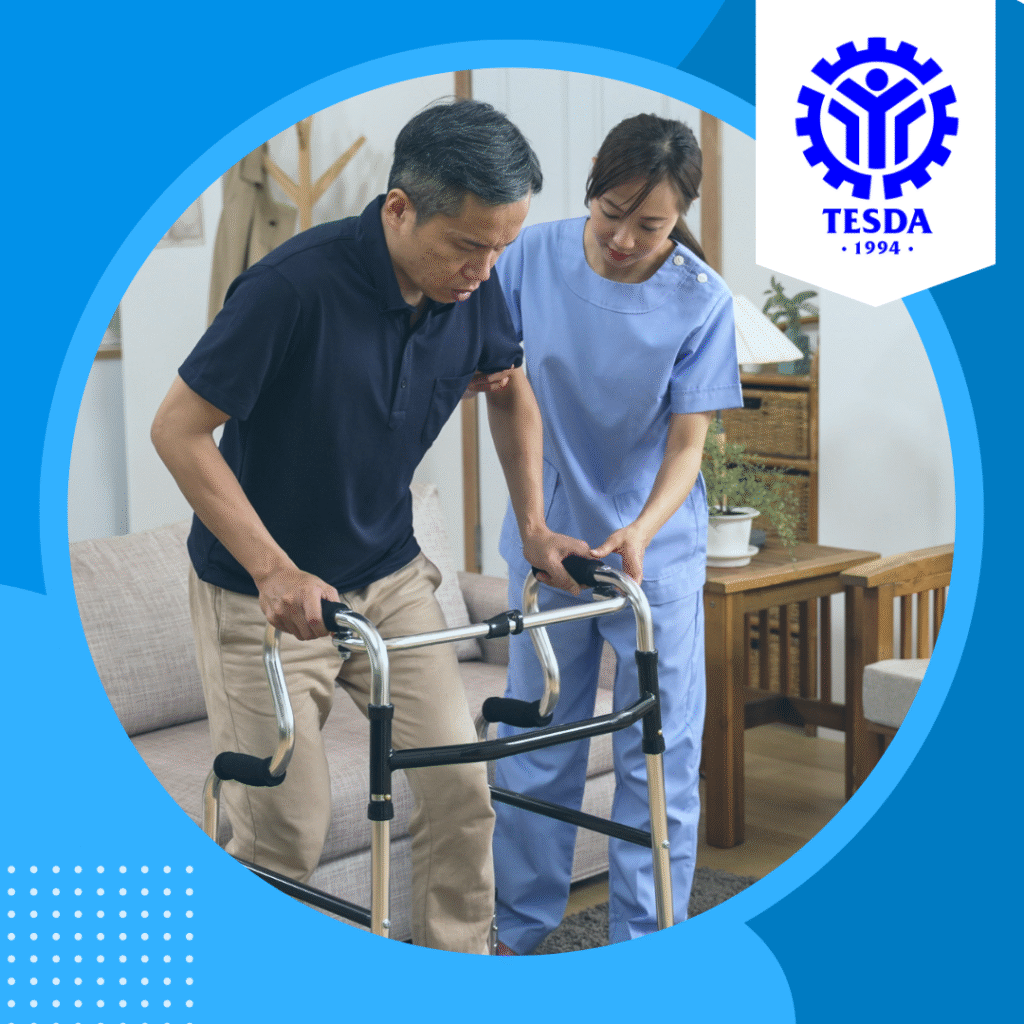
UNIT 1: Working in the Health Industry
Lesson 1: Overview of the Caregiving Profession
Lesson 2: Participating in Workplace Communication
Lesson 3: Working in a Team Environment
Lesson 4: Fostering Professional Growth and Development
Lesson 5: Occupational Health and Safety Policies and Procedures
Lesson 6: Identifying Entrepreneurial Skills in the Workplace
By the completion of the unit, the learner will possess the necessary skills to:
- Define the duties and responsibilities of a caregiver
- Gather information in the workplace
- Identify the roles and responsibilities of team members
- Develop emotion management skills, reflective practices, self-confidence, and self-regulation skills
- Identify Occupational Safety and Health procedure
- Apply entrepreneurial workplace best practices.
UNIT 2: Fundamentals of Caregiving
Lesson 1: Implementing and Monitoring Infection Control Policies and Procedures
Lesson 2: Responding Effectively to Difficult or Challenging Behavior
Lesson 3: Applying Basic First Aid
Lesson 4: Maintaining High Standards of Client Services
By the completion of the unit, the learner will possess the necessary skills to:
- Implement and monitor infection control policies and procedures
- Respond effectively to difficult or challenging behaviors of a patient or client
- Maintain high standards of patient client services
- Explain essential terminologies and principles in caregiving.
Module 2: Developing the Ability to Recognize the Aging Process
This module teaches learners how to understand and respond to changes that occur with aging. It covers caregiving principles, therapeutic communication, behavior management, infection control, safety, and sanitation.
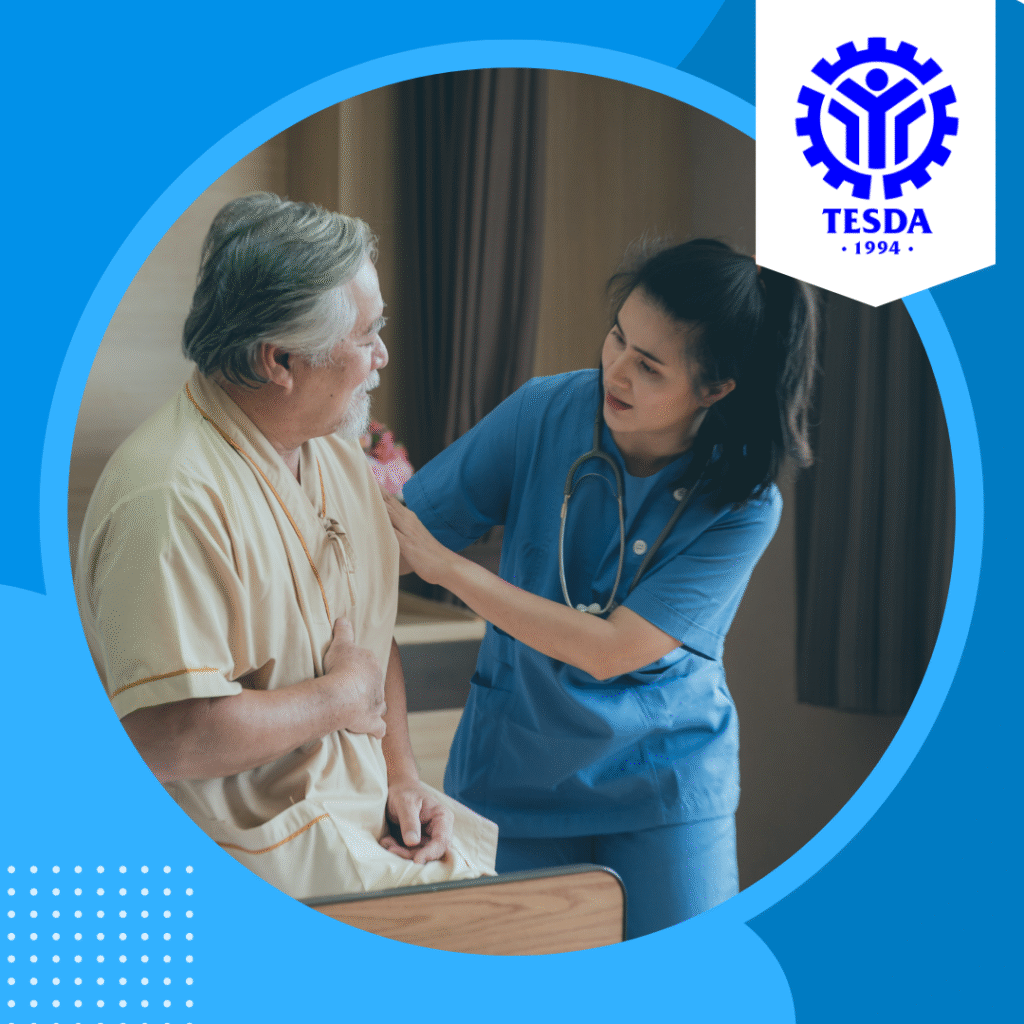
Unit 1: Interpreting Knowledge of Aging Process
Lesson 1: Theories and Stages of Aging
Lesson 2: Phases of the Aging Process
By the completion of the unit, the learner will possess the necessary skills to:
- Explain the theories and stages of aging
- Explain the phases of the aging process
Unit 2: Applying Principles of Caregiving Practice in Communication, Behavior Management, and Infection Control
Lesson 1: Practicing Therapeutic Communication and Behavior Management
Lesson 2: Infection Control, Safety, and Sanitation Practices
By the completion of the unit, the learner will possess the necessary skills to:
- Practice therapeutic communication and behavior management
- Apply infection control, safety, and sanitation practices.
Module 3: Participating in the Implementation and Monitoring of the Client’s Care Plan
This module teaches caregivers how to organize, provide, and monitor support services based on individualized care plans. Learn about care plan development, key components, and the endorsement process.
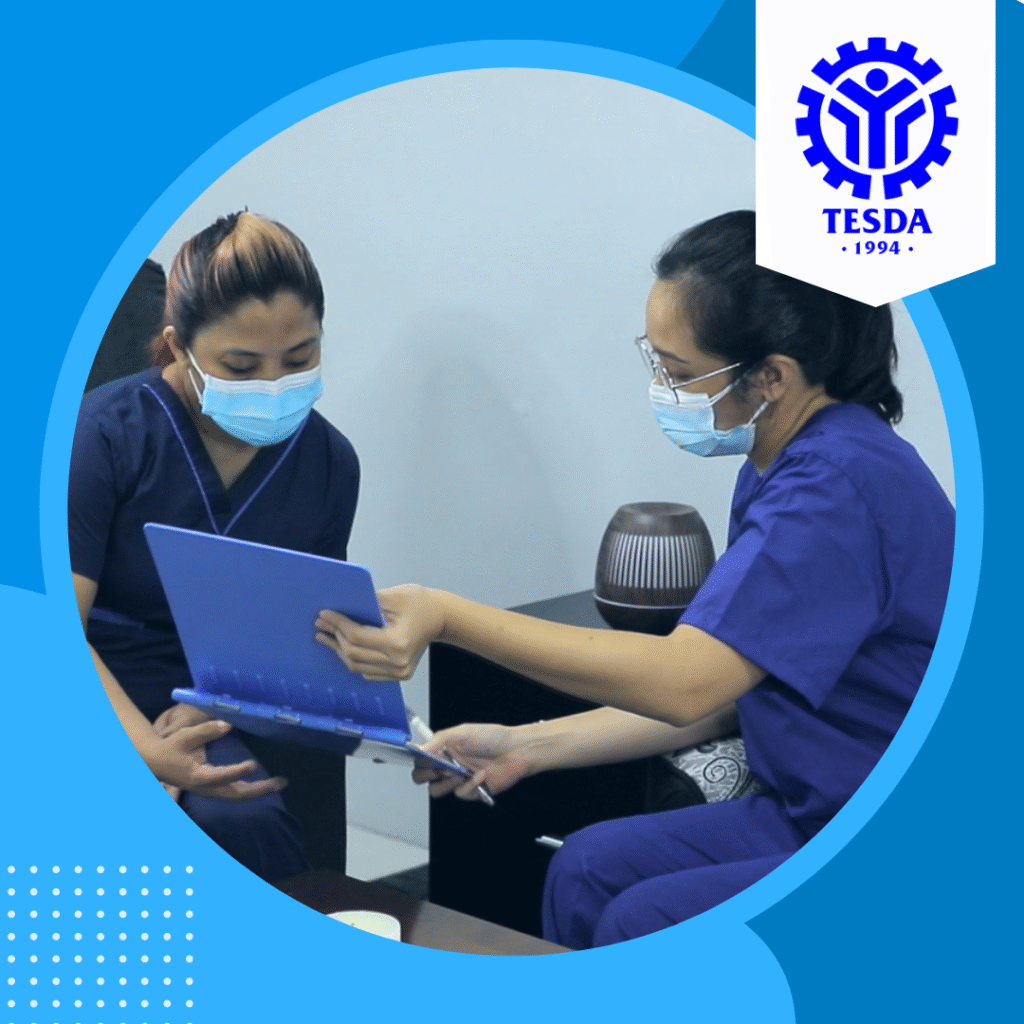
UNIT 1: Determining, Providing, and Monitoring Support Needs, Services and Activities
Lesson 1: Developing Care Plan
Lesson 2: Support Activities
By the completion of the unit, the learner will possess the necessary skills to:
- Develop a care plan
- Prepare support activities
UNIT 2: Accomplishing Complete Daily Records and Reports
Lesson 1: Preparing Complete Daily Reports and Records
By the completion of the unit, the learner will possess the necessary skills to:
- Provide complete daily records and reports
- Conduct an endorsement process based on the caregiver’s care plan
Module 4: Performing Caring Skills
In this module, you will learn how to support and assist clients with their daily care needs as outlined in their care plan. Topics covered include monitoring and recording vital signs, as well as helping clients with various tasks.

Unit 1: Monitoring and Recording Vital Signs of the Client
Lesson 1: Vital Signs
Lesson 2: Monitoring and Recording Vital Signs
Upon completion of this unit, you will acquire the necessary skills to:
- Define vital signs and important terminologies
- Perform procedures in taking vital signs
Unit 2: Assisting Care Clients
Lesson 1: Assisting Client in Fluids and Dietary Requirements
Lesson 2: Assisting Client in Urine and Bowel Elimination
Lesson 3: Assisting Client with Bathing/Showering
Lesson 4: Assisting Client in Perineal/Genital Care
Lesson 5: Assisting Client in Oral Care
Lesson 6: Assisting Client in Skin Care
Lesson 7: Assisting the Client in Dressing and Undressing
Lesson 8: Preparing and Maintaining Client’s Bed
Lesson 9: Assisting Client in Safe Ambulation and Transfer
Upon completion of this unit, you will acquire the necessary skills to:
- Assist client with fluids and dietary requirements
- Assist client in urine and bowel elimination
- Assist client with bathing/showering
- Assist client in perineal/genital care
- Assist client in oral care
- Assist client in skin care
- Assist client in dressing and undressing
- Prepare the client’s bed
- Assist clients in safe ambulation and transfer.
Module 5: Performing Specialty Care Procedures
This module teaches you how to support clients with their technical care needs. You will learn about basic wound care, hot and cold therapy, and palliative care.

UNIT 1: Assisting in Basic Wound Care
Lesson 1: Wounds and Wound Dressings
Lesson 2: Performing Wound Care
Upon completion of this unit, you will acquire the necessary skills to:
- Identify the types of wounds and types of dressing
- Perform wound care
UNIT 2: Performing Heat and Cold Therapy and Palliative Care
Lesson 1: Applying Heat and Cold Therapy
Lesson 2: Assisting in Providing Palliative Care
Upon completion of this unit, you will acquire the necessary skills to:
- Apply a variety of cold and hot therapy techniques
- Apply the principles of palliative care
Module 6: Assisting Client in Administering Prescribed Medication
This module teaches the knowledge, skills, and values needed to help clients with prescribed medication. You’ll learn about medicines, as well as how to prepare, assist, record, and report medication administration.

UNIT 1: Assisting Client with Medication Administration
Lesson 1: Preparing to Assist with Medication Administration
Lesson 2: Preparing the Client for Assistance with Administration of Medication
Lesson 3: Assisting and Supporting Medication Administration According to Prescription or Instructions
Upon completion of this unit, you will acquire the necessary skills to:
- Prepare to assist with medication administration
- Prepare the client for medication administration
- Assist with medication administration according to prescription or instructions
UNIT 2: Recording and Reporting Medication Administration
Lesson 1: Providing Records and Reports of Clients
Lesson 2: Complying with Industry Procedures for Handling the Range of Issues or Contingencies Which May Arise
Lesson 3: Completing the Distribution and Administration of Prescribed Medication
Upon completion of this unit, you will acquire the necessary skills to:
- Provide records and reports of the client
- Comply with industry procedures for handling the range of issues or contingencies which may arise
- Complete the distribution and administration of prescribed medication
Also read: TESDA Caregiving Courses
Contact Tracing NC II Online Course
The course teaches important skills to identify and track people exposed to COVID-19, helping to control the pandemic. Available through the TESDA Online Program, it provides valuable training for anyone who wants to improve their skills and support their community during these difficult times.
Modules
There are 6 Modules in the Contact Tracing NC II program. Each module contains specific topics and learning competencies that are essential for becoming a certified contact tracer.
Module 1: Introduction to Contact Tracing
This module equips you with the knowledge, skills, and attitude needed for contact tracing. It covers essential information about COVID-19, guidelines from the World Health Organization, the Philippine Inter-agency Task Force (IATF) for emerging infectious diseases, and the Department of Health. It also includes procedures for vital signs and basic first aid.
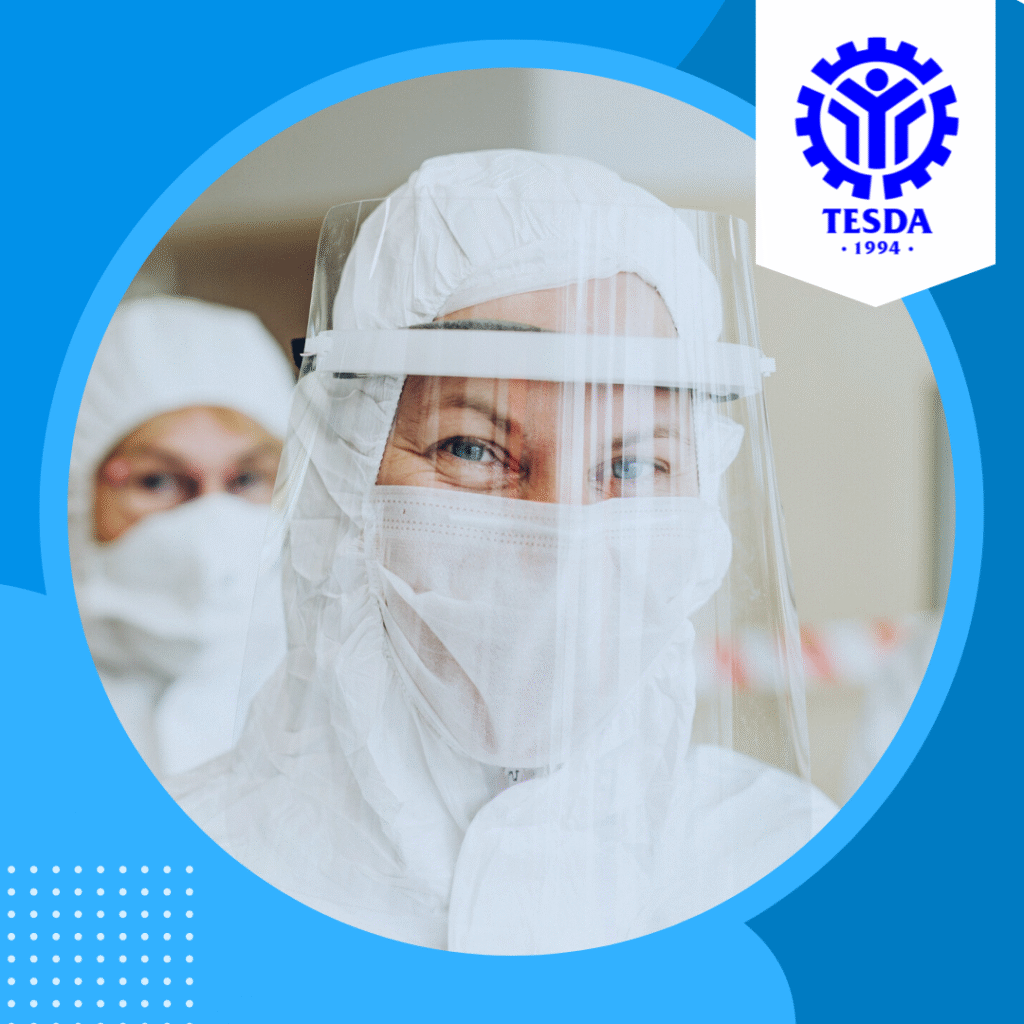
UNIT 1: Practicing COVID-19 Infection Prevention and Control
Lesson 1: Explaining the Basics of COVID-19 Infection
Lesson 2: COVID-19 Preventive Measures
Upon completion of this unit, the learner must possess the capability to:
- Explain the basics of COVID-19 infection
- Observe COVID-19 preventive measures
UNIT 2: Fundamentals of Contact Tracing
Lesson 1: The Contact Tracing Team
Lesson 2: Taking Vital Signs
Lesson 3: Providing Basic First Aid
Upon completion of this unit, the learner must possess the capability to:
- Explain the duties and responsibilities of a contact tracer
- Take relevant vital signs
- Provide basic first aid
Module 2: Conducting Health Education Program
This module equips you with the knowledge, skills, and attitude to provide health education during contact tracing. It includes assessing the health education needs and learning styles of confirmed cases and close contacts, and planning, implementing, and evaluating health education programs.
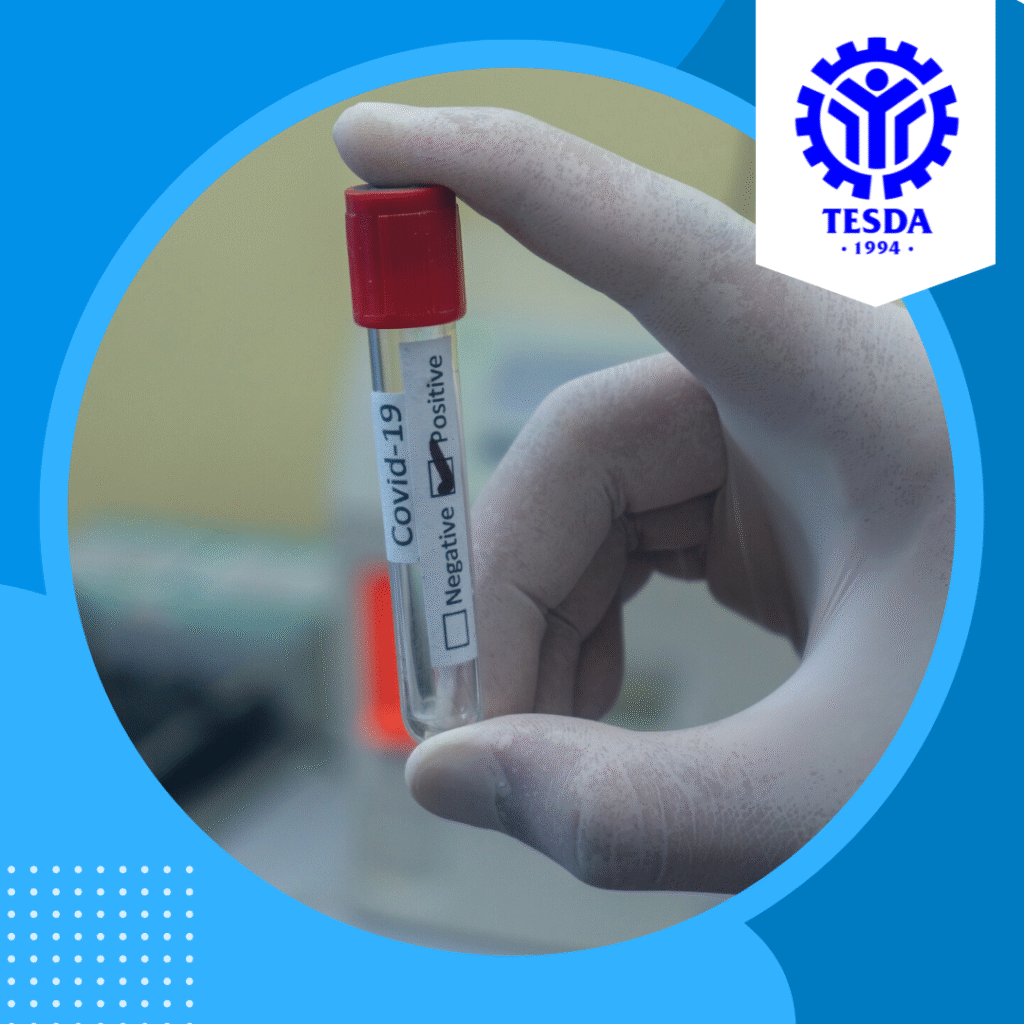
UNIT 1: Determining the Health Education Needs of Confirmed Cases and Close Contacts
Lesson 1: Defining Health Education
Lesson 2: Preparing for the Conduct of Health Education
Upon completion of this unit, the learner must possess the capability to:
- Define health education
- Assess the learning needs and styles of a person.
UNIT 2: Implementing and Evaluating Health Education Programs
Lesson 1: Implementing Health Education Programs
Lesson 2: Evaluating Health Education Programs
Upon completion of this unit, the learner must possess the capability to:
- Implement health education programs
- Evaluate the conduct of a health education program
Module 3: Profiling Close Contacts
This module will provide you with the necessary knowledge, skills, and attitude to profile close contacts of confirmed COVID-19 cases. It includes classifying close contacts, preparing forms, and verifying collected data while maintaining confidentiality.
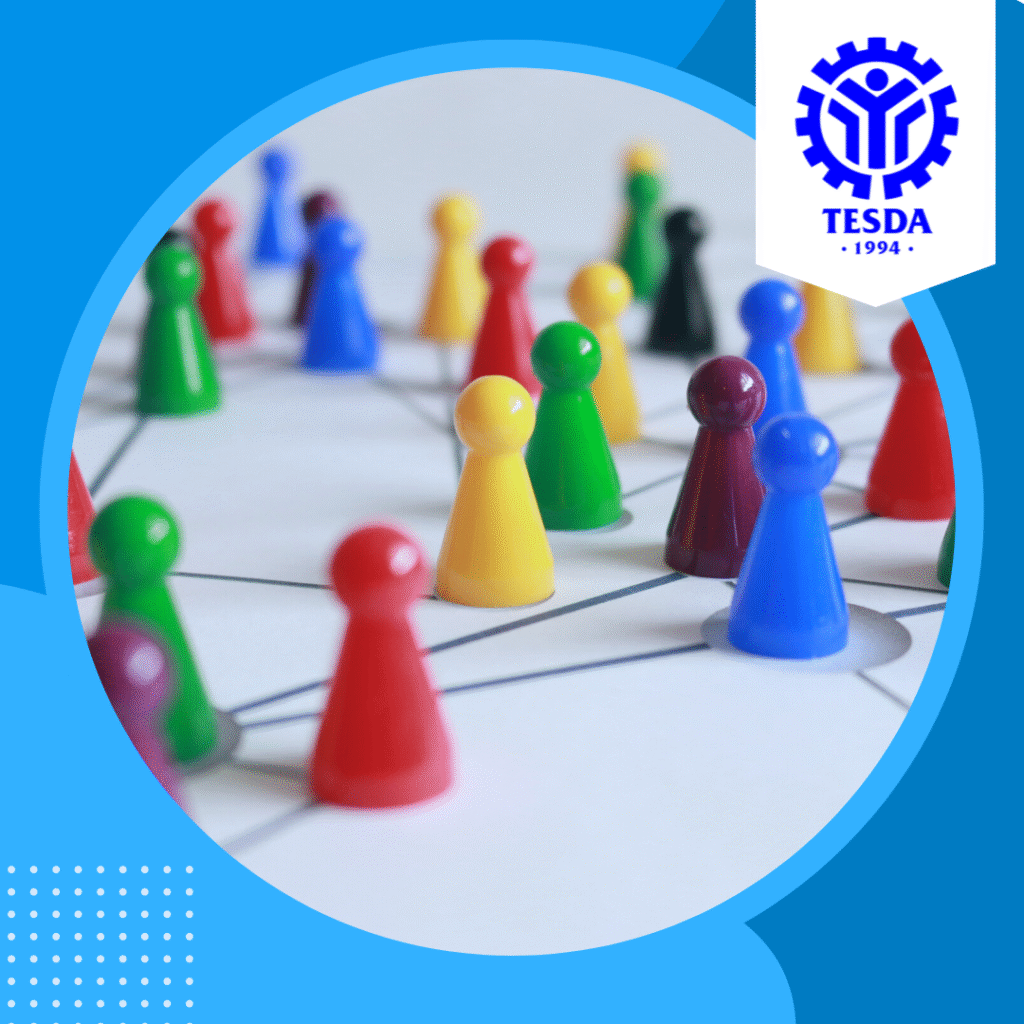
UNIT 1: Preparing for Close Contact Interview
Lesson 1: Determining and Classifying Close Contacts
Lesson 2: Verifying Close Contact Information
Upon completion of this unit, the learner must possess the capability to:
- Classify close contact according to their level of exposure and symptoms
- Verify close contact information before conducting the interview.
UNIT 2: Interviewing and Endorsing Close Contacts
Lesson 1: Conducting Close Contact Interviews
Lesson 2: Endorsing Close Contacts
Upon completion of this unit, the learner must possess the capability to:
- Conduct close contact interviews properly
- Endorse close contacts according to established procedures
Module 4: Conducting Health Education Program
This module covers the essential components of providing health education during contact tracing. It includes assessing the needs of confirmed cases and close contacts, understanding their learning styles, and developing, implementing, and evaluating health education programs.
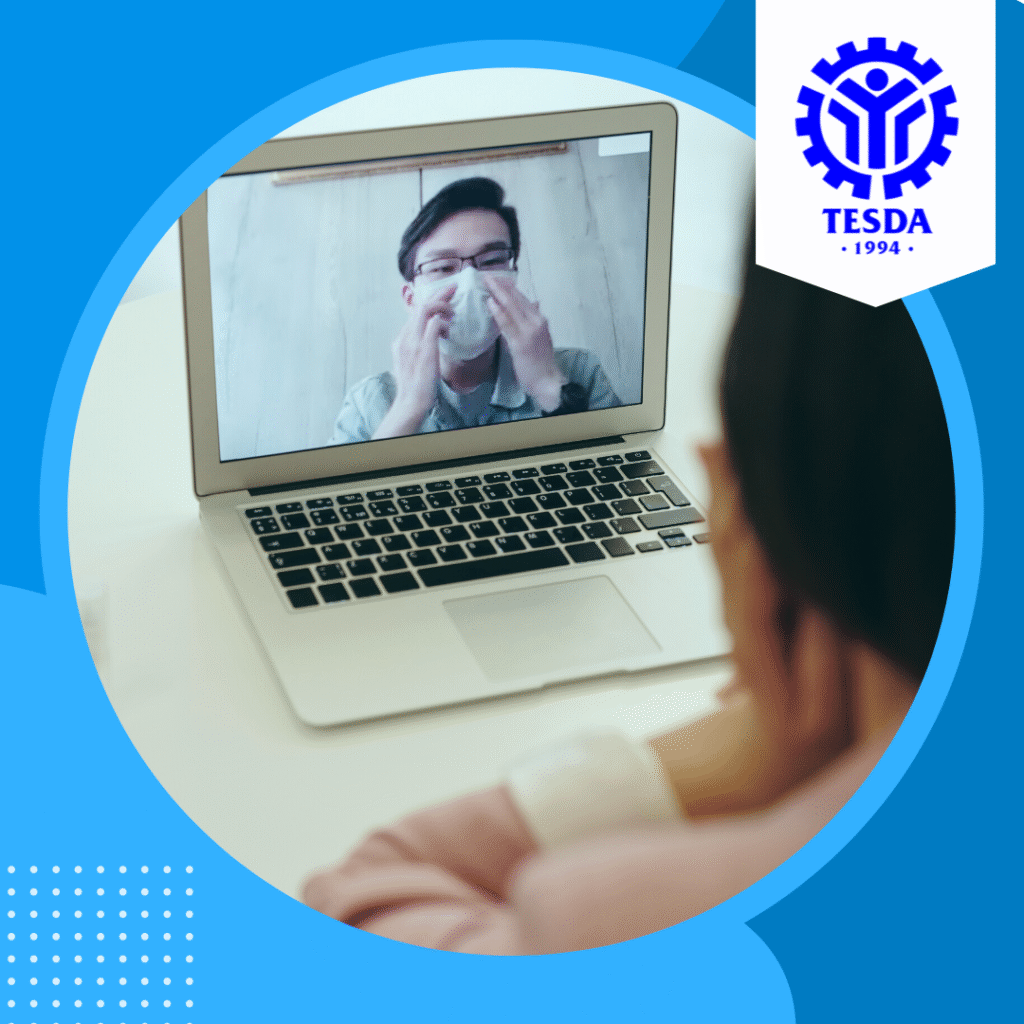
UNIT 1: Determining the Health Education Needs of Confirmed Cases and Close Contacts
Lesson 1: Defining Health Education
Lesson 2: Preparing for the Conduct of Health Education
Upon completion of this unit, the learner must possess the capability to:
- Define health education
- Assess the learning needs and styles of a person
UNIT 2: Implementing and Evaluating Health Education Programs
Lesson 1: Implementing Health Education Programs
Lesson 2: Evaluating Health Education Programs
Upon completion of this unit, the learner must possess the capability to:
- Implement health education programs
- Evaluate the conduct of a health education program.
Module 5: Performing Data Recording and Reporting
This module will provide you with the necessary knowledge, skills, and attitude to record and report data collected from contact tracing activities. This includes computer usage, data encoding, records management, and contact tracing software.
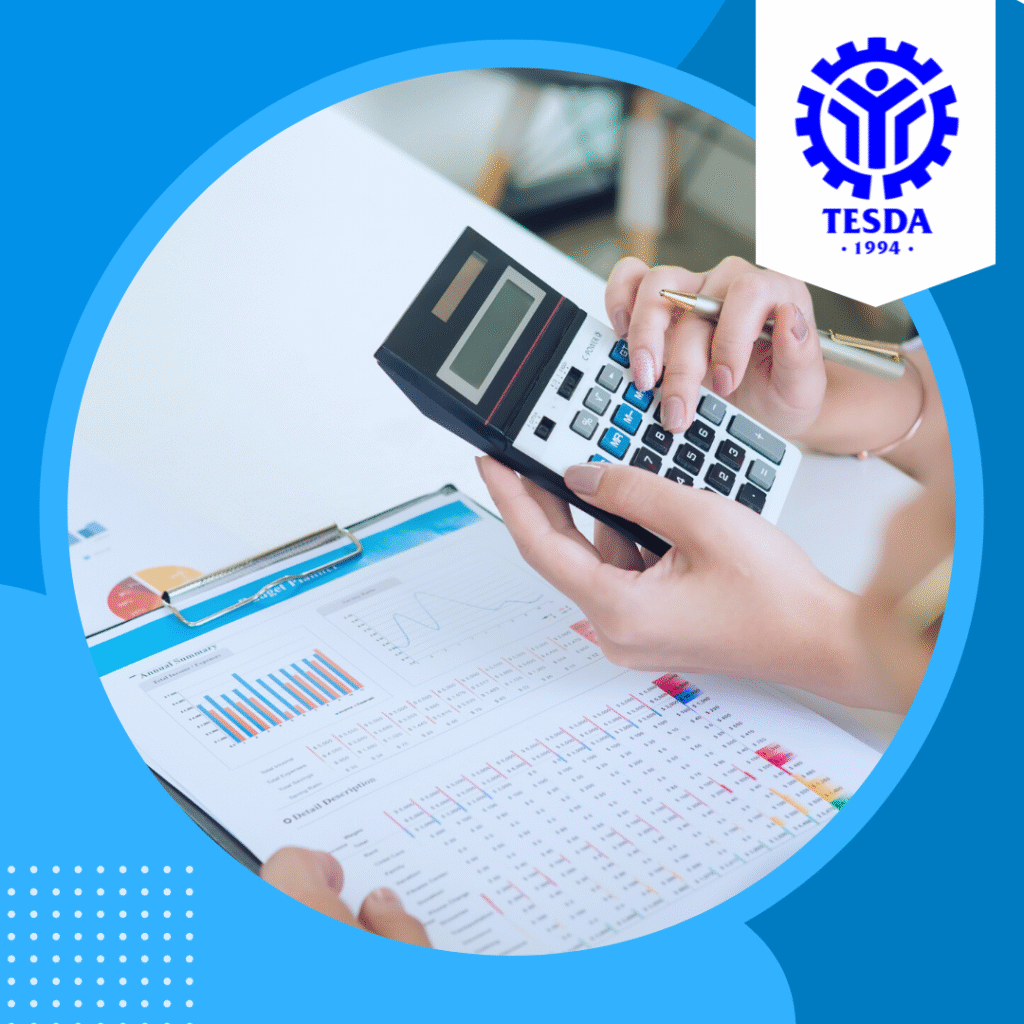
UNIT 1: Demonstrating Computer Literacy
Lesson 1: Basic Computer Concepts and Components
Lesson 2: Basic Computer Applications
Lesson 3: Communicating through the Internet
Upon completion of this unit, the learner must possess the capability to:
- Identify the basic functions of basic computer components
- Utilize basic computer applications
- Communicate through the internet following basic network etiquette
UNIT 2: Collecting and Reporting Data
Lesson 1: Performing Data Collection and Preparation
Lesson 2: Performing Data Input
Lesson 3: Performing Data Processing and Reporting
Lesson 4: Performing Recordkeeping and Data Storage
Upon completion of this unit, the learner must possess the capability to:
- Conduct data collection and preparation
- Perform data input
- Demonstrate data processing and reporting technique
- Perform recordkeeping and data storage
Module 6: Conducting Monitoring and Surveillance
This module will provide you with the knowledge, skills, and attitude necessary to monitor close contacts of confirmed cases. You will also learn how to update client records and promptly inform your supervisor of specific cases or findings.
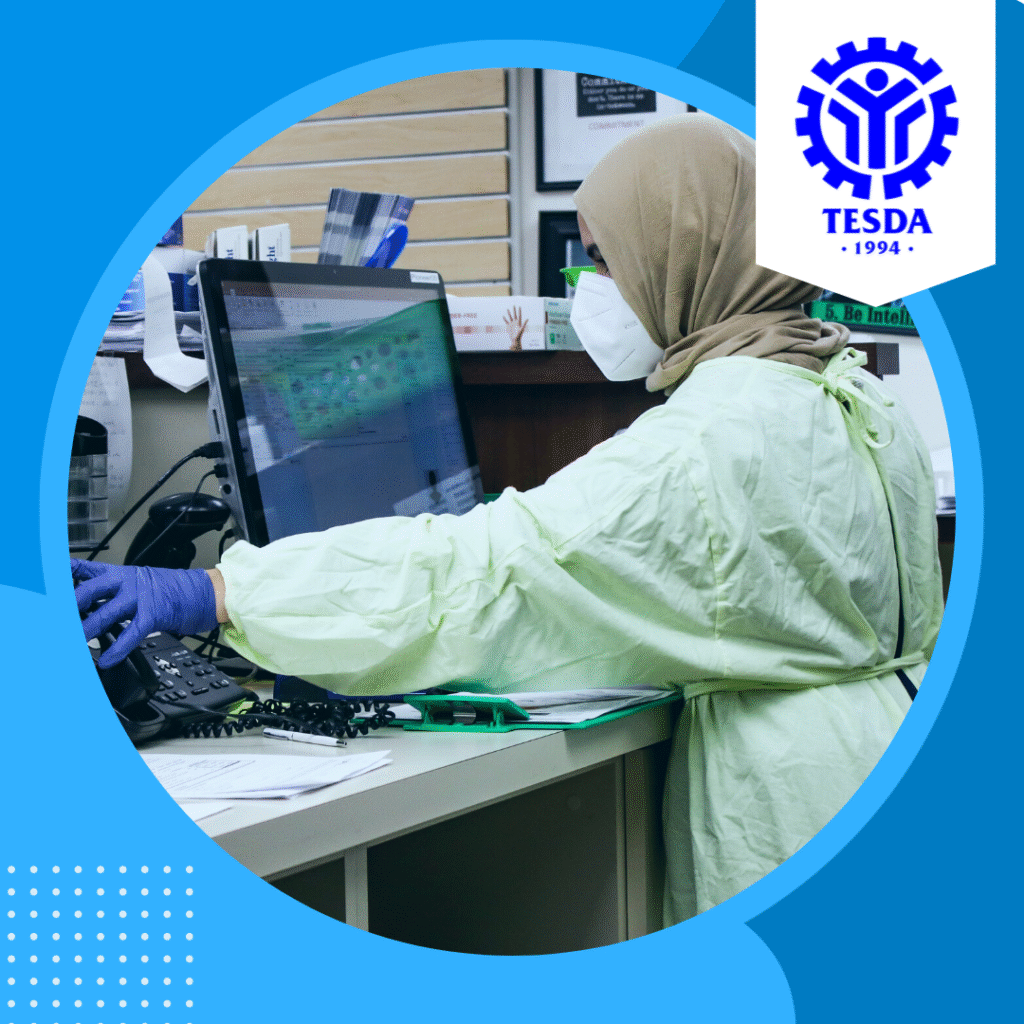
UNIT 1: Preparing for Monitoring and Surveillance
Lesson 1: COVID-19 Case Monitoring and Surveillance Teams
Lesson 2: Monitoring and Surveillance Tools
Upon completion of this unit, the learner must possess the capability to:
- Determine the composition and responsibilities of the monitoring and surveillance teams
- Identify the different monitoring and surveillance tools.
UNIT 2: Monitoring Cases and Close Contacts
Lesson 1: Classification of COVID-19 Cases
Lesson 2: Monitoring Close Contacts
Upon completion of this unit, the learner must possess the capability to:
- Differentiate the classifications of COVID-19 cases
- Perform close contact monitoring
Note: Upon completion of each module, or specific modules, you will be awarded a certificate to recognize your achievements and demonstrate your expertise in the respective subject matter. These certificates serve as a testament to your dedication and commitment to continuous learning.
Barangay Infectious Disease Management Services Level II Online Course
TESDA now offers the Barangay Infectious Disease Management Level II Online Course, teaching disease prevention, surveillance, and outbreak management to keep communities safe.
Modules
There are 3 modules in the Barangay Infectious Disease Management Services Level II. These modules provide comprehensive training in handling and managing infectious diseases at the barangay level.
Module 1: Introduction to Barangay Infectious Disease Management
In this module, you’ll learn the essentials for conducting infectious disease management services. Topics include public health worker duties, Department of Health guidelines, Philippine Inter-Agency Task Force (IATF) protocols, World Health Organization recommendations, client management, and basic first aid for common emergencies.
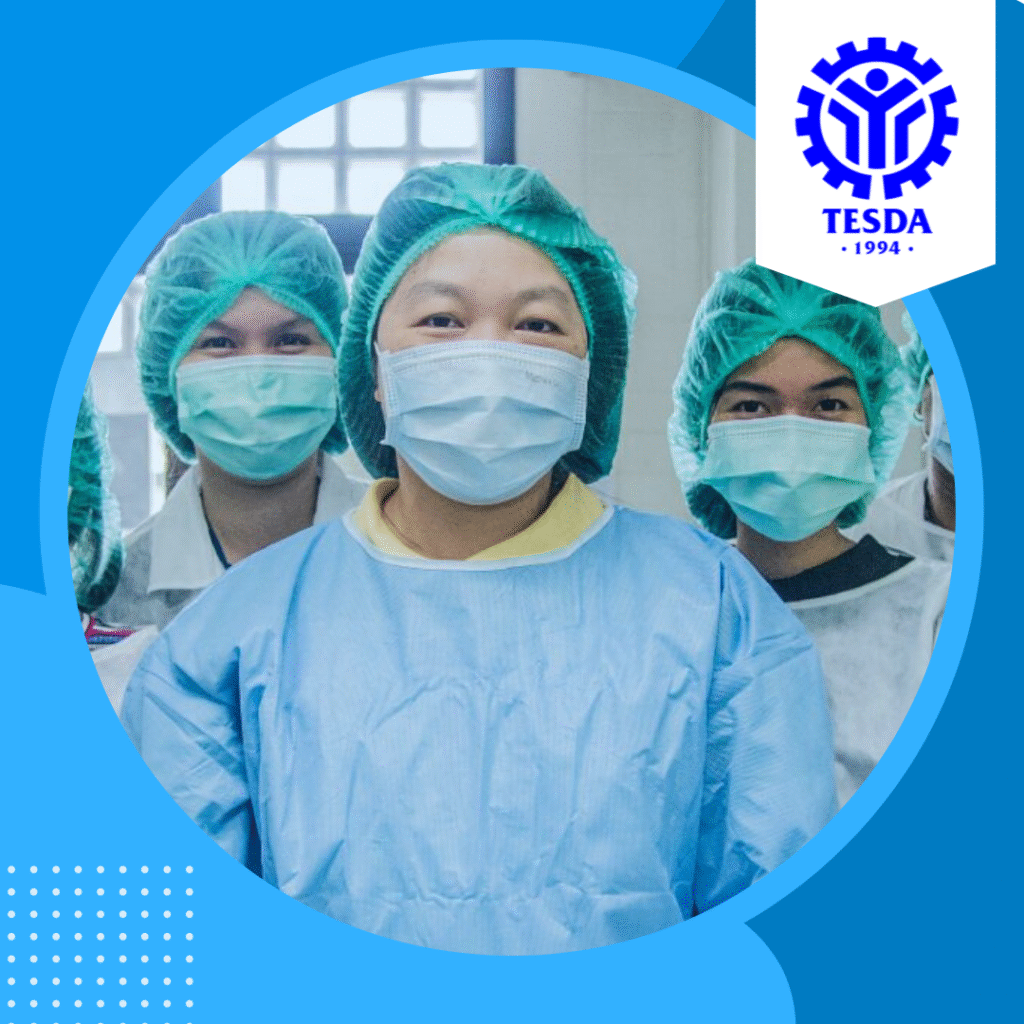
UNIT 1: Working in the Public Health Sector
Lesson 1: Working as a Public Health Worker
Lesson 2: Professional Work Habits and Skills
Upon completion of this unit, the learner will possess the ability to:
- Determine the duties and obligations of a public health worker
- Exhibit professional work habits and skills in the workplace.
UNIT 2: Fundamentals of Infection Control and Monitoring
Lesson 1: Explaining the P-D-I-T-R+V Strategy
Lesson 2: Implementing Infection Control Policies and Procedures
Lesson 3: Maintaining High Standards of Patient/Client Management
Lesson 4: Applying Basic First Aid
Upon completion of this unit, the learner will possess the ability to:
- Explain the P-D-I-T-R+ Strategy
- Implement infection control policies and procedures
- Maintain high standards of patient/client management
- Apply basic first aid to some common emergencies.
Module 2: Disseminating Preventive Measures in Infectious Disease Transmission and the Importance of Immunization
In this module, you’ll learn how to effectively share information on infection prevention and immunization. Discover the skills, knowledge, and attitude required. Also, gain insights on gathering data for disease surveillance and risk assessment.
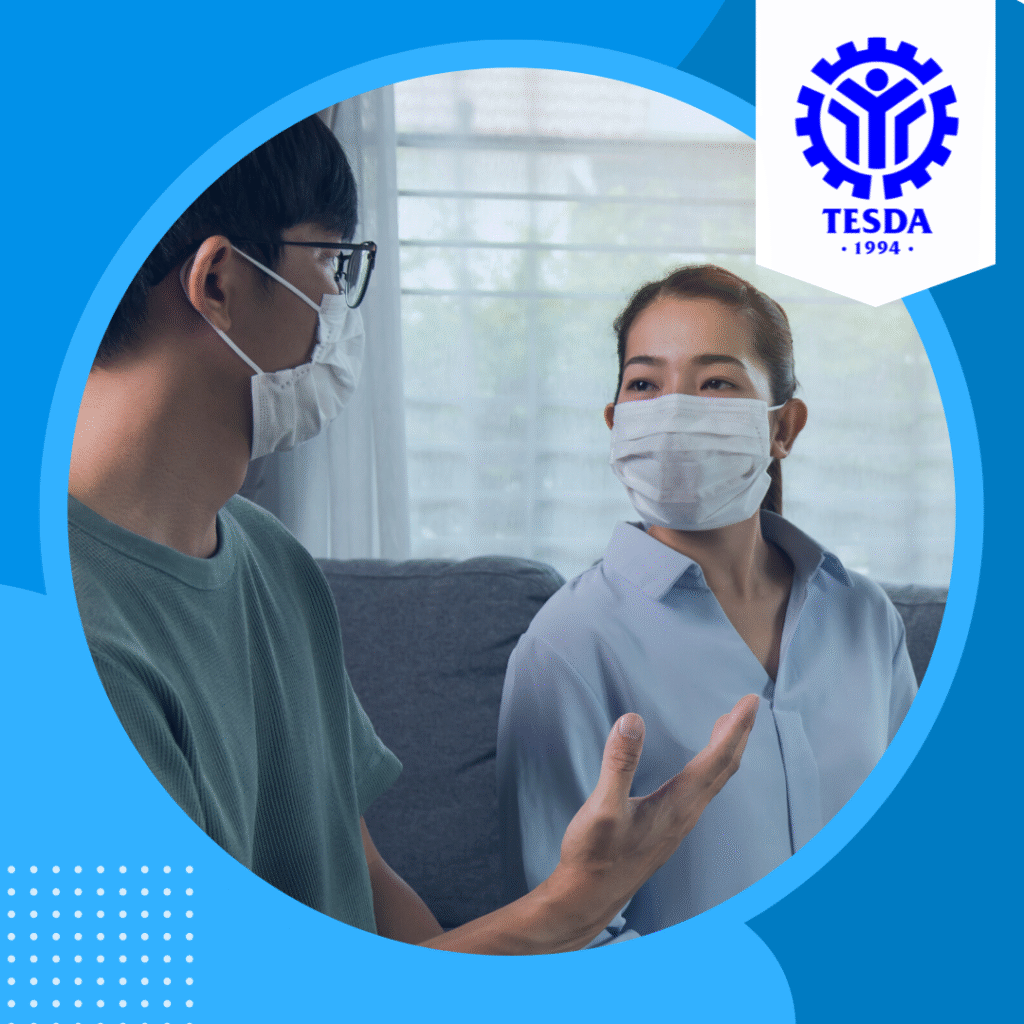
UNIT 1: Discussing Infectious Disease Transmission, Prevention, Control, and Importance of Immunization
Lesson 1: Identifying the Basic Principles of Infectious Disease Transmission
Lesson 2: Identifying the Basic Principles of Infectious Disease Prevention and Control
Lesson 3: Defining Immunization and Its Importance in Infectious Disease Control and Prevention
Upon completion of this unit, the learner will possess the ability to:
- Identify the basic principles of infectious disease transmission
- Identify the basic principles of infectious disease control and prevention
- State the importance of immunization in infectious disease control/prevention
UNIT 2: Communicating Information to the Public and Gathering Data About Infectious Disease Transmission, Control, and Prevention
Lesson 1: Conducting Information Dissemination on Infectious Disease Transmission, Control, and Prevention
Lesson 2: Collecting Data of Infectious Disease-Related Services
Upon completion of this unit, the learner will possess the ability to:
- Demonstrate effective information dissemination about infectious disease transmission and prevention
- Gather relevant data about infectious disease transmission and prevention using interviews and questionnaires.
Module 3: Assisting in the Management of Infectious Diseases in Different Settings
In this module, you’ll learn the essentials of assisting during an infectious disease outbreak. Topics include prevention and control, standard infection prevention procedures, and client reintegration post-infection.
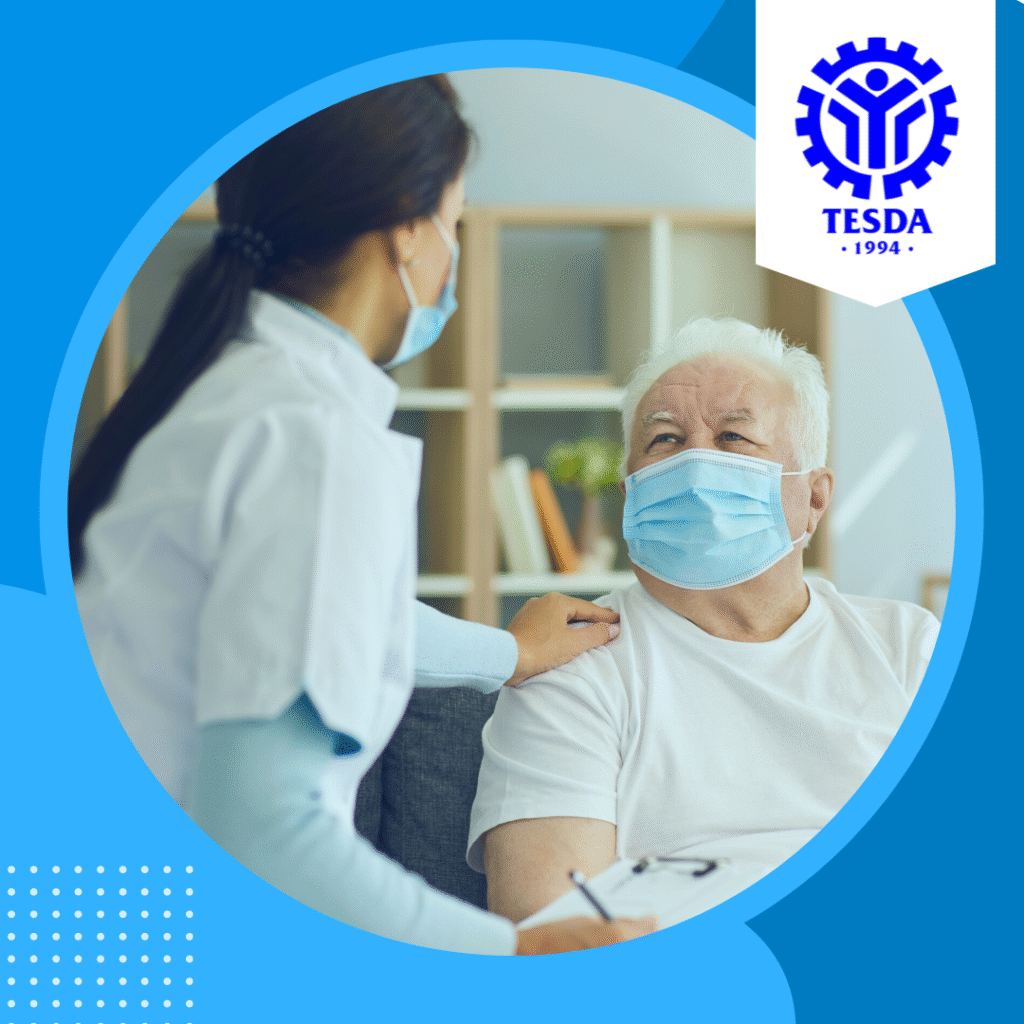
UNIT 1: Applying the Basic Principles of Infectious Diseases Prevention and Control
Lesson 1: Differentiating Mortality and Morbidity
Lesson 2: Determining Pathogens of Common Diseases
Lesson 3: Providing Primary Health Care
Upon completion of this unit, the learner will possess the ability to:
- Differentiate mortality and morbidity;
- Determine pathogens of common diseases; and
- Determine population-based and individual primary health care.
UNIT 2: Initiating Implementation of Infection Control Measures in Different Settings
Lesson 1: Infection Control Measures
Lesson 2: Coordinating and Communicating Supportive Management for Different Diseases
Upon completion of this unit, the learner will possess the ability to:
- Initiate implementation of established infection control measures.
- Coordinate and communicate supportive management for common infectious diseases.
UNIT 3: Assisting in the Reintegration of Patients with Infectious Diseases
Lesson 1: Coordinating Reintegration of Patients of Infectious Diseases
Lesson 2: Reporting Client Data to Concerned Local Health Offices
Upon completion of this unit, the learner will possess the ability to:
- Observe the policies and guidelines regarding the reintegration of the patients; and
- Report client data to concerned local health offices.
Note: Upon completion of each module, or specific modules, you will be awarded a certificate to recognize your achievements and demonstrate your expertise in the respective subject matter. These certificates serve as a testament to your dedication and commitment to continuous learning.
Also read: TESDA Pharmacy Services Courses
Practicing COVID-19 Preventive Measures in the Workplace Online Course
Aside from the proper use of personal protective equipment (PPE) and frequent handwashing, TESDA also offers online courses on Workplace Health and Safety, which includes topics on COVID-19 preventive measures. This will equip workers with the knowledge and skills to ensure a safe workplace for themselves and their colleagues.

Frequently Asked Questions
1. How do I enroll in these courses?
A: To learn how to enroll in a course in the TESDA Online Program (TOP), click HERE.
2. Are there any fees for enrolling in these courses?
A: No, all online courses offered by TESDA are free of charge.
3. Can I receive a certificate after completing the course?
A: Yes, once you have completed and passed the assessment for the course, you can download your certificate from the TESDA Online Program website. You can also request for a printed copy through their regional or provincial offices.
4. Are these certificates recognized by employers?
A: Yes, TESDA certificates are recognized by both local and international employers. They serve as a proof of your skills and knowledge in a specific field, making you more competitive in the job market.
5. Can I use these certificates to further my education?
A: Yes, some colleges and universities recognize TESDA certifications and may offer credit exemptions or advanced standing for certain courses if you have completed the equivalent TESDA course.
Summary
The Human Health/ Health Care Online Courses by TESDA Online program offers a variety of courses that can be taken to improve one’s skills in the health care industry. These courses are not only beneficial for individuals who want to work in the healthcare sector, but also for those who want to have basic knowledge on how to keep themselves and others safe during this pandemic. By taking these online courses, individuals can contribute to the fight against COVID-19 while also improving their employability and career opportunities. Let us all take advantage of these opportunities provided by TESDA Online and continue learning and practicing preventive measures in our workplaces and communities.
 Advantages
Advantages
































